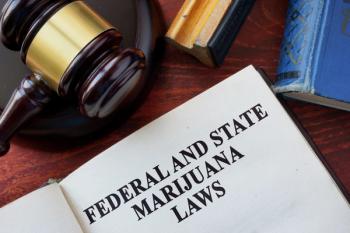
Survey Identifies Need for CBD Education Among Community Pharmacists
Survey results presented during the ASHP 2020 Midyear Clinical Meeting and Exhibition offered insight into community pharmacists’ knowledge and confidence of CBD products.
Many community pharmacists reported lacking knowledge of and confidence in non-prescription cannabidiol (CBD) products, according to a study presented at the American Society of Health-System Pharmacists (ASHP) 2020 Midyear Clinical Meeting and Exhibition.
Despite anecdotal reports of benefits for chronic pain, arthritis/joint pain, and anxiety, there is limited evidence to support the use of CBD. However, CBD product sales continue to soar, and pharmacists must be equipped with information needed to answer patient questions in the pharmacy.
To assess community pharmacists’ knowledge, experience, and confidence of these CBD products, a research team led by Shivani Patel, PharmD, surveyed a sample of those working at community pharmacies in the California Bay Area region. Pharmacists anonymously completed the 38-question pen-and-paper survey, which was divided in 4 sections: knowledge-based questions, participant’s experience, confidence-based questions, and demographics.
Twenty-five of the 128 pharmacists asked to participate in the survey declined to answer the questions. A total of 103 pharmacists completed the survey.
According to the findings, 80.6% of participants correctly answered the FDA-approved indications and 78.6% correctly answered the potential adverse effects (AEs) of CBD products. However, the majority were not knowledgeable about legality, metabolism, and psychoactive AEs.
Pharmacists had the most difficulty answering questions about the legality of CBD products, with only 6.8% of pharmacists who responded correctly. Additionally, only 39.8% of pharmacists correctly answered the questions about metabolism and psychoactive AEs. Overall, only 12.6% were able to answer 4 out of the 5 knowledge-based questions correctly and 4.9% were able to answer all 5 questions correctly.
Patel noted that pharmacists who reported formal training were more likely to answer more knowledge-based questions correctly compared with those who did not receive formal training.
Furthermore, 68.6% of pharmacists reported having been asked about CBD products on a daily to quarterly basis. In the last year, 20.4% of participants have recommended the use of a CBD product to patients: 80.9% recommended a topical CBD product and 52.4% recommended an ingestible CBD product. Of the pharmacists who made recommendations, the majority indicated CBD products for pain (90.4%) followed by anxiety (38.1%), depression (28.6%), and insomnia (23.8%).
Other results from the survey showed:
- Between 41.7% and 75.5% of pharmacists were “not confident” in providing evidence-based recommendations, treatment recommendations, describing safety, describing warning and contraindications, and determining quality of the product.
- Pharmacists younger than 55 years of age were more likely to report confidence in providing an evidence-based recommendation.
- Pharmacists with formal training were more confident in providing evidence-based recommendations.
- Sixty-six percent would like more educational resources on legal status and 75.7% would like more educational resources on the formulations and safety/efficacy.
According to Patel, the results of the study may not be generalizable to other parts of the country as the ethnicity of the sample is not representative of those in the US as a whole. Additionally, the sample size had a greater percentage of females and lower percentage of males compared with the national average. The results also may not be applicable to pharmacists working in other areas or to other health care providers.
ASHP Midyear 2020 Clinical Meeting and Exhibition was held virtually December 6-10, 2020.
Reference
- Patel S, Doroudgar S, Ip E. Community pharmacists’ lack of knowledge and confidence of non-prescription cannabidiol products. Presented at: ASHP Midyear 2020 Clinical Meeting & Exhibition; December 7, 2020. Accessed January 4, 2020.
Newsletter
Pharmacy practice is always changing. Stay ahead of the curve with the Drug Topics newsletter and get the latest drug information, industry trends, and patient care tips.























